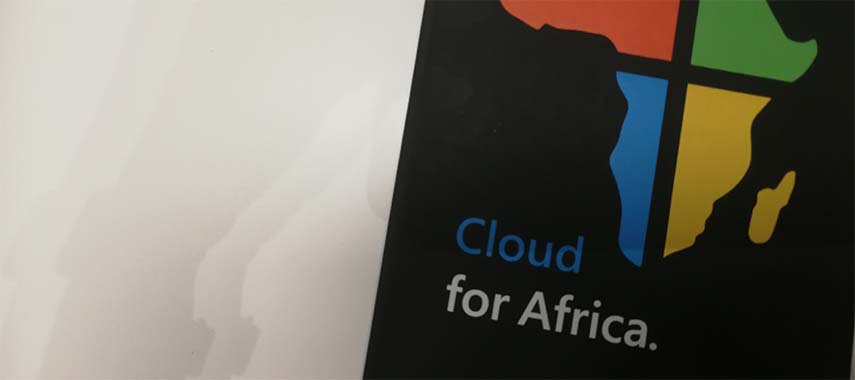Microsoft South Africa has officially opened its local data centres in Johannesburg and Cape Town, aimed at driving public cloud, artificial intelligence (AI) and edge implementations across the African continent.
The software giant has also announced a new multi-million rand investment in skills and industry support as part of its equity equivalence programme.
Yousef Khalidi, corporate vice-president: Azure networking at Microsoft, launched the two new data centres as part of the global Azure hyperscaled platform.
They become part of a 54-region ecosystem that represents a multi-billion dollar investment, he says.
“Today, with these new data centres in South Africa, you join this global network,” Khalidi says. “At the same time you now have your own data centres.”
This means that customers can decide to keep their data locally, or use the platform to expand globally.
“We view this as the lynchpin for the whole continent,” Khalidi says. “In parallel with the data centres, we have been investing in networking the rest of the continent.
“The global ecosystem of developers who are developing tools for Azure now belong to you as well.”
The two new data centres will be known as the South Africa North region, based in Johannesburg, and South Africa West in Cape Town.
“They are available to a multitude of users, from end users pursuing a service, to developers and corporates,” Khalidi says.
“This, to us, is the beginning of a journey that will hopefully expand the developer ecosystem and the users in South Africa and Africa.
“The combination of Microsoft’s global cloud infrastructure with the new regions in Africa will increase economic opportunity for organisations in Africa, as well as connect businesses across the globe through improved access to cloud and internet services,” Khalidi adds. “In addition, the availability of Microsoft’s cloud services delivered from Africa will mean local companies can securely and reliably move their businesses to the cloud while meeting compliance requirements.”
According to a study from IDC, spending on public cloud services in South Africa will nearly triple over the next five years from R4,29-billion in 2017 to R11,53-billion in 2022, and the adoption of cloud services will generate nearly 112000 net new jobs in South Africa by the end of 2022.
The study also shows that increased utilisation of public cloud services and the additional investments into private and hybrid cloud solutions is enabling organisations in South Africa to focus on innovation and building “digital businesses at scale”. In turn, this enablement will help businesses generate close to R80-billion in new revenue over the next five years.
Microsoft this morning has also announced a multi-million dollar investment in equity equivalence.
It will focus on skills development and supporting the agriculture and manufacturing sectors in South Africa.
“Agriculture and manufacturing are key to GDP and keep the engine of the economy running,” says Lillian Barnard, MD of Microsoft SA, “We want to boost these sectors to spur economic growth, and aim to provide businesses with access to technology solutions.”
Microsoft’s EEIP is also funding skills development among South Africa’s young software developers, making them more employable, and there will be continued investment in the ISV sector to strengthen local South African intellectual property as well as accelerate their growth in the global market.
Barnard adds that the fourth industrial age that we are living in now will fundamentally alter the way we live, work and relate to one another.
“In scale, scope and complexity the transformation will be unlike any humankind has seen before,” she says. “Our response has to be integrated and comprehensive.”
With technology changing the way we live and work, it’s important that Africa and South Africa not be left behind, Barnard adds.
“At Microsoft, we believe this investment in infrastructure and skills development will help the country navigate the fourth industrial revolution.”
Stella Ndabeni-Abrahams, minister of communications, welcomes the investment from Microsoft.
“We are living the fourth industrial revolution now,” she says. “We couldn’t do it as government alone.
“If we do not create an enabling environment for businesses to invest in South Africa, our people would miss out on the benefits of technology.”

